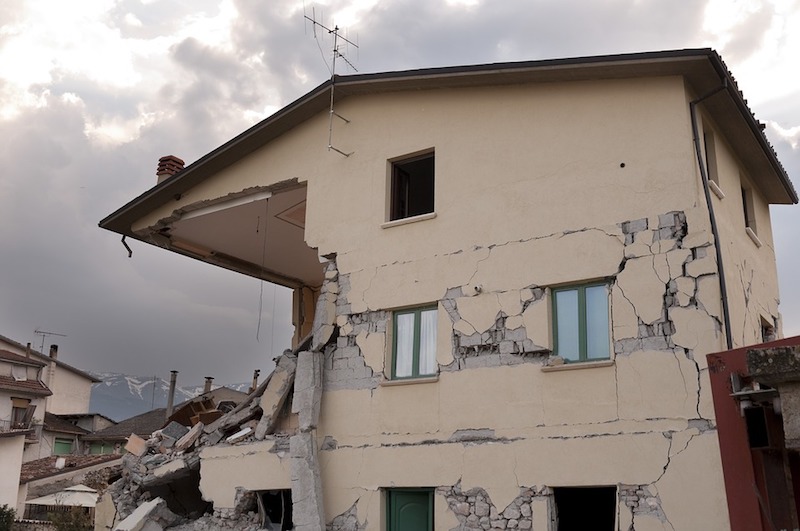The United States Resiliency Council through its support behind California’s AB 2681, a bill now in the appropriations committee that would assist cities in identifying the most seismically vulnerable structures.
The bill would provide funding and tools for cities to identify dangers to their communities and infrastructure. According to the council, the benefits of the bill include:
— Protection for affordable housing: Many vulnerable buildings are older structures that make up much of the state’s more affordable housing stock.
— Shielding communities from chaos: Projected loss of housing would leave hundreds of thousands of people homeless and in desperate need of refuge.
— Informing the public about personal risks: People have a right to make decisions about the buildings in which they live and work based on the best available information. Identifying and evaluating potentially vulnerable buildings is the first step toward engaging stakeholders about the importance of creating more resilient cities.
— Promoting social justice: Most of those impacted by a major quake will be lower-income residents whose lives and livelihoods will be disproportionately impacted due to their economic and social status.
— Protecting public health: Many older buildings contain asbestos and lead, which, when released into the air and groundwater from crumbled rubble will pose a public health problem of potentially overwhelming impacts.
Related Stories
Codes and Standards | Sep 19, 2024
Navigating the intricacies of code compliance and authorities having jurisdiction
The construction of a building entails navigating through a maze of regulations, permits, and codes. Architects are more than mere designers; we are stewards of safety and navigators of code compliance.
Government Buildings | Sep 17, 2024
OSHA’s proposed heat standard published in Federal Register
The Occupational Safety and Health Administration (OSHA) has published a proposed standard addressing heat illness in outdoor and indoor settings in the Federal Register. The proposed rule would require employers to evaluate workplaces and implement controls to mitigate exposure to heat through engineering and administrative controls, training, effective communication, and other measures.
Codes and Standards | Sep 17, 2024
New California building code encourages, but does not mandate heat pumps
New California homes are more likely to have all-electric appliances starting in 2026 after the state’s energy regulators approved new state building standards. The new building code will encourage installation of heat pumps without actually banning gas heating.
Codes and Standards | Sep 17, 2024
ASHRAE’s first group of certified decarbonization professionals announced
ASHRAE recently announced its inaugural cohort of Certified Decarbonization Professionals (CDPs). Individuals who earned this designation demonstrate competency to assess, analyze, and develop effective and sustainable strategies to reduce or eliminate the life-cycle carbon footprint of buildings.
Education Facilities | Sep 16, 2024
Hot classrooms, playgrounds spur K-12 school districts to go beyond AC for cooling
With hotter weather occurring during the school year, school districts are turning to cooling strategies to complement air conditioning. Reflective playgrounds and roads, cool roofs and window films, shade structures and conversion of asphalt surfaces to a natural state are all being tried in various regions of the country.
Adaptive Reuse | Sep 12, 2024
White paper on office-to-residential conversions released by IAPMO
IAPMO has published a new white paper titled “Adaptive Reuse: Converting Offices to Multi-Residential Family,” a comprehensive analysis of addressing housing shortages through the conversion of office spaces into residential units.
Legislation | Sep 9, 2024
Efforts to encourage more housing projects on California coast stall
A movement to encourage more housing projects along the California coast has stalled out in the California legislature. Earlier this year, lawmakers, with the backing of some housing activists, introduced a series of bills aimed at making it easier to build apartments and accessory dwelling units along California’s highly regulated coast.
Office Buildings | Sep 6, 2024
Fact sheet outlines benefits, challenges of thermal energy storage for commercial buildings
A U.S. Dept. of Energy document discusses the benefits and challenges of thermal energy storage for commercial buildings. The document explains how the various types of thermal energy storage technologies work, where their installation is most beneficial, and some practical considerations around installations.
Office Buildings | Sep 5, 2024
Office space downsizing trend appears to be past peak
The office downsizing trend may be past its peak, according to a CBRE survey of 225 companies with offices in the U.S., Canada, and Latin America. Just 37% of companies plan to shrink their office space this year compared to 57% last year, the survey found.
Codes and Standards | Sep 3, 2024
Atlanta aims to crack down on blighted properties with new tax
A new Atlanta law is intended to crack down on absentee landlords including commercial property owners and clean up neglected properties. The “Blight Tax” allows city officials to put levies on blighted property owners up to 25 times higher than current millage rates.

















